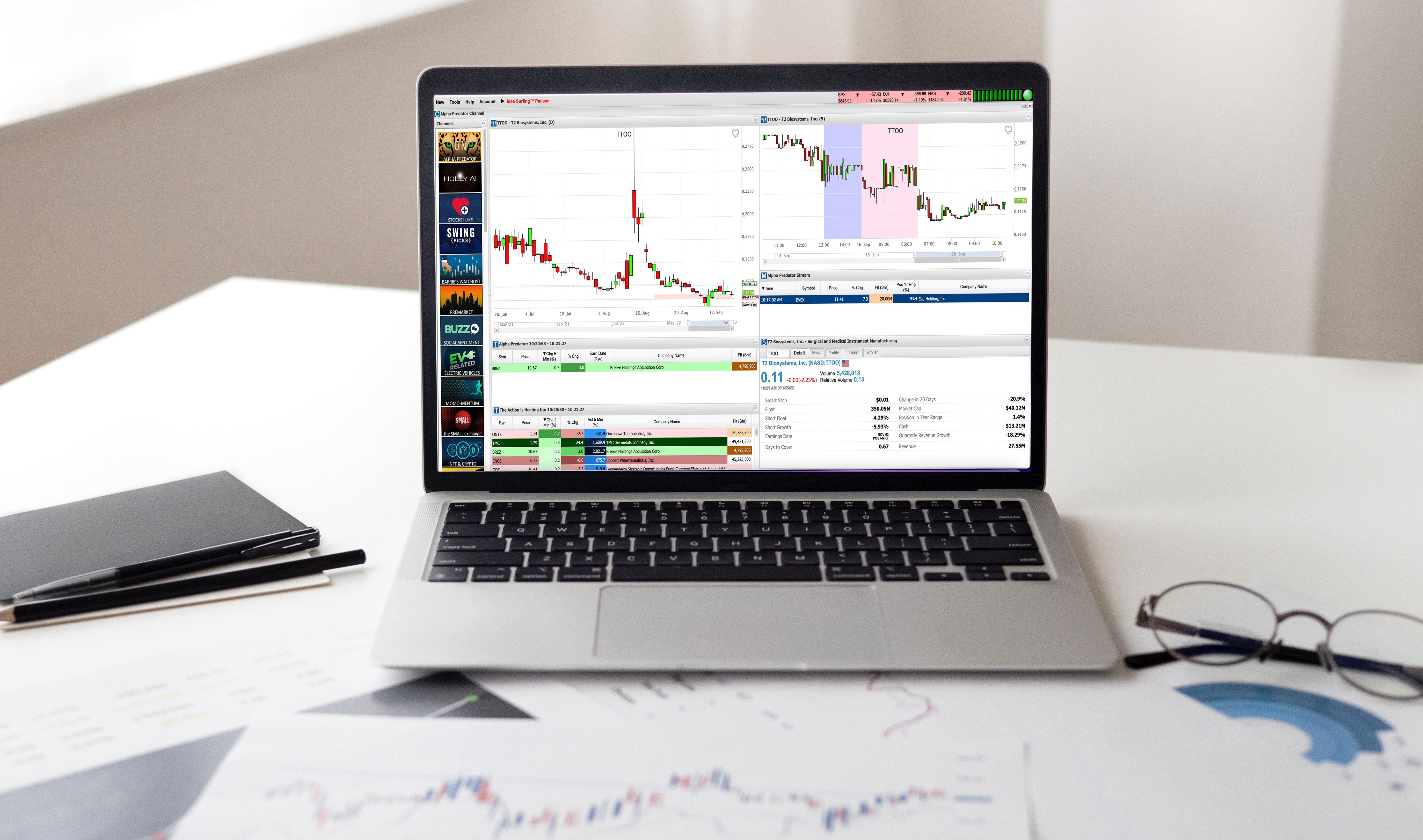Is Swing Trading Better Than Day Trading? Tips on how to make either style work for you!
Is Swing Trading Better Than Day Trading? Tips on how to make either style work for you!
By Katie Gomez

One of the most critical decisions a trader must make is what time-frame they want to trade on, essentially choosing what kind of trader they would like to become.
DAY TRADING
A day trader, also called an intraday trader, is more than just a trader who trades during the day. Essentially, the job of a day trader entails a more nuanced view than a swing trader. Day trading means exiting all positions by the end of the trading day.
Tip 1: Close out all your positions.
Day traders do not keep open positions overnight, they end each day with a clean slate. Day traders close open positions by the close to avoid running the risk of a surprise loss in the morning because of a gap up or down. The trader that chooses to keep stock positions overnight (like swing traders do) can lead to greater profits than selling the day before, but it is far riskier as there is no telling what the overnight markets or surprise news will do.
Tip 2: Know your time frame.
Day traders must be savvy, knowledgeable, and quick, which all stem from intense focus throughout the day. The length of your time frame represents how fast you are trading. Day traders usually watch their charts in 1-minute to 10-minute time-frames.
Whatever frame you choose, you will realize how fast-paced of an environment this type of trading facilitates. Day traders must be ready to sit at their desks and be as focused as they would be flying an airplane—there is no time for distractions. Therefore, if you already have a full-time job, day trading becomes a near impossible route to take. You must be seriously focused and committed to succeed as a day trader, especially if you want to trade on the more risky and shorter trading time frames.
Tip 3: Avoid the 1-minute time frame.
If you want to play in the one-minute chart, it is like trying to beat a computer playing a game of chess. The smaller the time frame, the more noise. Because automated market makers like Citadel own these smaller time frames, you may get eaten alive simply by being too slow. Unfortunately, newer traders are drawn to the fast-paced action of small time frames and may not realize how deep the water is until they drown.
Tip 4: Be prepared.
No matter the time-frame you choose, each will require you to stay focused and invest in a more efficient trading setup at home or in the office. The day trader setup should include: a desktop computer or laptop with high-speed internet access/WIFI, backup internet, a day trading brokerage, and updated charting software.
If you are currently a day trader or looking to transition into/become one, Trade Ideas has you covered with all the essentials to work with the market on a day-to-day basis.

SWING TRADING
If you feel overwhelmed just by reading about day trading, you might want to try swing trading instead. Swing trading is usually the easier route because it zooms out from the noise in the smaller time-frames of day trading. These trades happen in much slower time-frames (15 minutes +), so unlike day traders, your eyes will not have to stay glued to your screen for eight hours.
Moreover, swing trading is the better option if you have other obligations or the pressure of making quick decisions turns you off. Unlike day trading, which requires you to make dozens of daily decisions, swing trading offers you more energy and time to slow down your decision frequency.
Tip 1: Try to wait until the end of the day for the candle to close before you decide to sell your stocks or see your current positions through another day. You can even use the end of day candle to open a new swing position and see if you get a head start on a strong following day.
Tip 2: Beware of Market Stop Orders
Market stop orders are encouraged for most traders, but swing traders have to be careful. They are controversial because of the control they give to market artificial intelligence. Your commissions are now free, which is a better position than having to pay. However, your commission free broker sells market stop order information to giant computers that use that information against you. These algorithms know that when the market points drop, they will try to scare you into selling first thing in the morning out of pure panic and automatically sell your stock at the market stop order price.
When your broker sells your market stop orders, you are now vulnerable. If you were playing poker, you would not show the dealer your hand and then let him decide that you should fold. He’d want to take your money now, not risk you winning the pot. That said, putting your trust in these market stop orders may feel safer, but it is not the way to win.
Tip 3: If you still choose to use market stop orders, at least wait one hour after the market opens before acting.
The collective level of panic and pain from overnight stop orders can result in an automatic sale lower (stop hunt) than ideal. However, the longer the day goes on, the market stop orders will become less and less harmful as people have already sold their shares and the low for the day. The risk may feel unsettling, but there is no worse feeling than selling your shares too early out of fear, only to watch it sell high when the market closes later that day. Once all the other market stop orders get cleaned out from the night before, it becomes a more fair market for you—the payoff is worth the patience.
By the end of the day, swing traders buy or sell depending on how the candle will close, while day traders make snap decisions the moment the market opens. Day trading is for quick, full-time traders who want to always cash out by the end of the day. Therefore, most people find it easier to work as a swing trader, as it is less time-consuming, and you can make more money if you hold overnight. Each trading style has pros and cons, it depends on which works best for you and where you can see yourself excelling.
